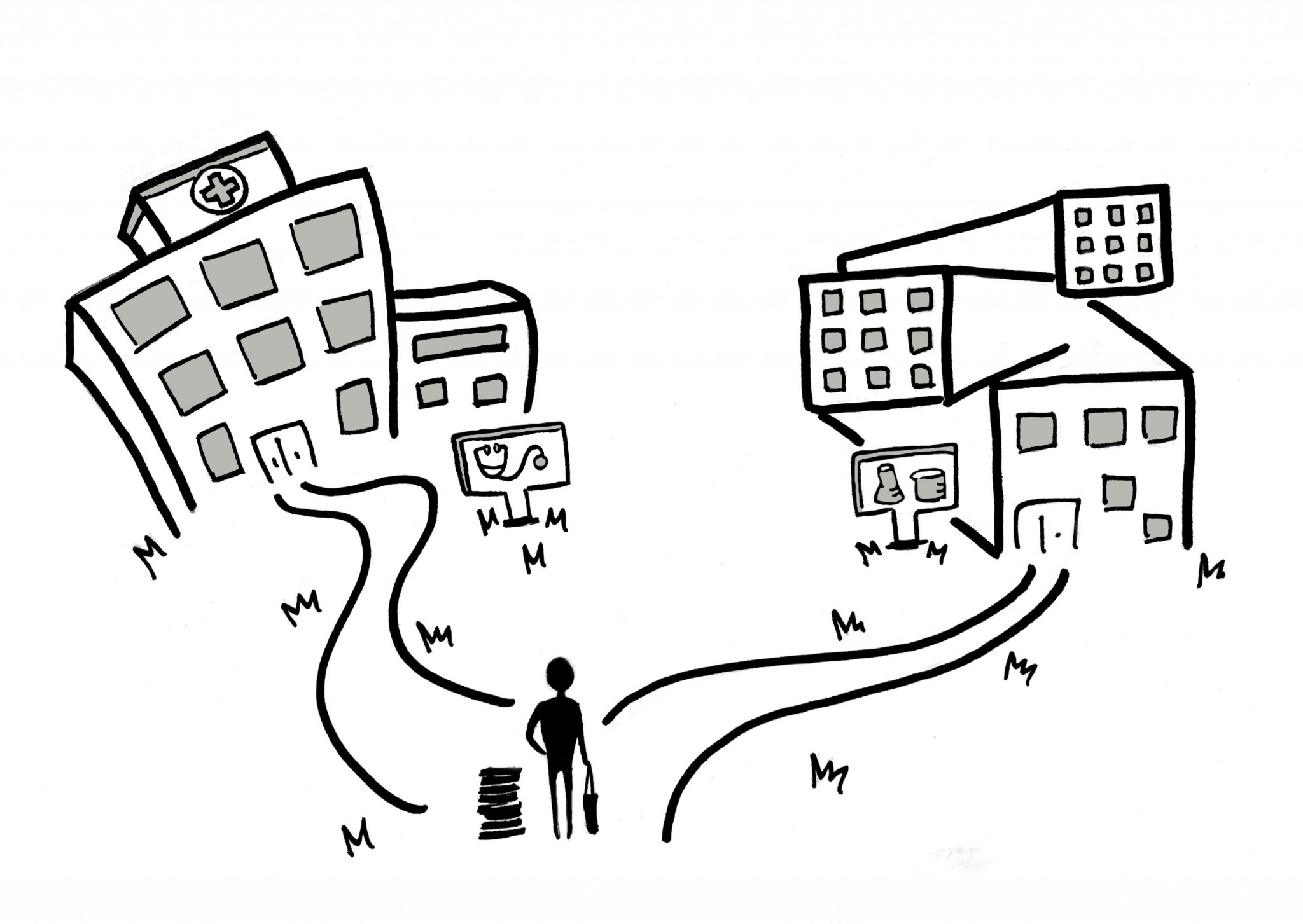Deciding what to do after graduation is hard for all undergraduates. While some are blessed with the secure knowledge of what their future holds, for most, that’s not the case. For Science students, the most common choices are graduate or medical school. While undergraduate studies, for the most part, provide all the necessary skills and information to pursue both of these choices, it fails in one important area—real work experience in either of these positions. To acquire this, students must look further.
So you want to be a doctor?
Many people have always coveted having a “Dr.” before their name. However, without having done any real medical work, it’s impossible to know if the choice is right. During university, a number of options exist to give students an idea about the realities of medical work. The easiest choice is volunteering—hospitals will always need people to sweep floors, cart meals around, and empty bedpans. Although unglamorous, this choice exposes students to career options in medicine, as well as the general process by which most procedures are undertaken.
“I got the job by filling out the application, as well as [having] two reference letters,” U2 Environment student Lydia Kaprelian, who has been volunteering at St. Mary’s Hospital since January, explained. “I work in the recycling department and find new lives for products and streamlining the recycling process in the hospital.”
The McGill University Health Centre (MUHC) currently has over 2,000 volunteers and also offers its volunteers workshops and seminars about healthcare. Other volunteering opportunities exist at the Jewish General Hospital (JGH), l’Hopital Hotel Dieu, and the Montreal Children’s Hospital.
For those overwhelmed by the thought of working in a hospital, shadowing a doctor is another choice. Unfortunately, most hospitals in Montreal don’t offer a shadowing program. Researching private practitioners by their area of specialty is probably the best option for students who want to get a feel of the day-to-day responsibilities of a doctor. At McGill, Medical Direction offers lists of possible shadowing opportunities for new students. It may take a couple of hits before finding someone to agree, but it’s not impossible. For this, parents are a useful tool; often they have friends (or friends of friends) who are doctors that may be willing to participate in a shadowing program.
McGill is also host to its own Student Emergency Response Team (M-SERT). M-SERT is an entirely student-run volunteer service that provides emergency first aid services to McGill University and Montreal communities.
“I personally noticed some changes [in myself],” M-SERT Director of Finance Katherine Li explained. “As a member of M-SERT you’re looking out for everyone, there’s absolutely no prejudice. Everyone is someone that you care for and you want to help; once you gain this mentality, it’s really hard to lose.”
Those on M-SERT not only help their peers, but also obtain Canadian Red Cross Emergency First Responder certification. It’s important to understand what medical work is like before embarking on an expensive, long, and difficult medical journey.
“I’ve learned how to apply knowledge from school in the real world,” explained U3 Nursing student Soyoon Jin, who has spent time volunteering at the Montreal General Hospital, Royal Victoria Hospital, and the JGH. “[You] interact with others as individual human beings, not [just] as an illness you have to identify.”
So you want to go to graduate school?
If the sight of blood makes you queasy, but you have a passion for details, discovery, and experimentation, then working in a lab might be right for you. There’s a wide range of research being conducted within a single field, so its important to figure out what type of work you want to do within a particular field before even making a decision about which professors to contact. Participating in undergraduate research is a more competitive process than getting medical volunteer experience, so the best professors to contact are the one’s whose classes you’ve taken. That way, the professor has an idea about your capabilities from your grade, and knows you’re somewhat interested in their research.
Contacting professors can be tricky. During the school year, professors are busy reading and writing grants, teaching classes, and running their labs. Consequently, they have very little time for taking on prospective undergraduate students, which means that it is important for students to distinguish themselves from the crowd. There is a happy medium between emailing as many professors as possible and emailing labs with research areas of specific interest.
E-mails to professors should include reasons beyond “I’m interested in your work.” Students should read publications by the professor’s group and determine precisely what about their work is interesting to talk about. This helps the professor weed out those who will actually commit because of interest versus those just looking for a CV booster.
McGill’s summer undergraduate research policy prevents unpaid students from working in a lab. For students, this means they should apply for funding. Funding can be obtained in a variety of ways. For Canadian students, The Natural Sciences and Engineering Research Council (NSERC) of Canada offers Undergraduate Student Research Awards (USRA) to citizens and permanent residents of Canada. For all other students, McGill has Science Undergraduate Research Awards (SURA), funded by private donors and awarded on the basis of academic merit, as well as work-study programs. Once the school year starts, however, students are eligible to work on a volunteer basis in labs.
This article is a part of our McGill 101 issue, which aims to ease your transition and answer questions you have about McGill and Montreal.









